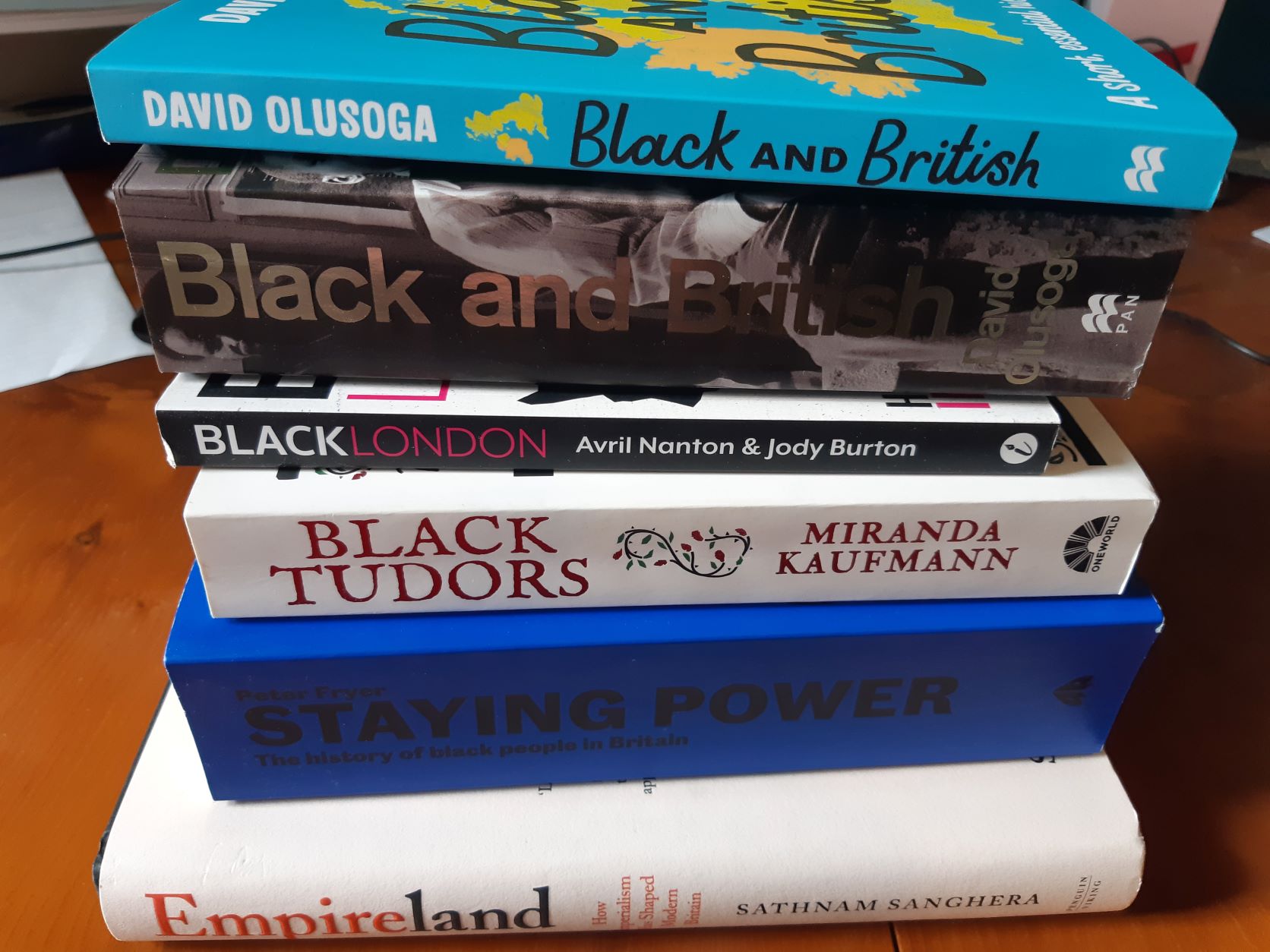Helena Mattingley, Head of Equality, Diversity & Inclusion at King’s reflects on what makes the cut into history curricula and shares her ever growing reading list.
Each October we mark Black History Month to celebrate the achievements and contributions of Black people now and throughout history, and noting the deliberate neglect or active removal of Black people from history.
British History as taught in schools is highly edited, not only in terms of historic periods, but who within those periods has the spotlight. History is produced in re-creating – who and what is chosen, how it is presented, and the selective memory and even more selective re-telling.
History is created from the pieces left behind, cherry picked and woven into a narrative by curators which typically matches their world view. It’s taught as being History, rather than curated evidence of the past – by which I mean it’s presented as Truth with a capital T.
My perception of what I was taught as history was like looking through a microscope and being told I could see the whole of UK History. To have a real understanding, we need to recognise the prejudice and bias of the evidence, of the historians, and what makes it into public consciousness is not a true reflection. I want to add more microscopes and more perspectives until I can see a broader representation of the past to continue my self-education.
This is why Dr Liam Liburd’s work to design a King’s Colonial History module is so important. Through inclusive scholarship, a cohort of talented students have uncovered and pulled silenced histories into focus. New voices and perspectives are bringing an important dimension of our past to life, and challenging the simplistic default white narratives.
Self-education is a powerful took, which is why I’ve been building a reading list. What would you add to this?
- Black and British, David Olusoga
- Black London, Avril Nanton and Jody Burton
- Black Tudors, Miranda Kaufmann
- Staying Power, Peter Fryer
- Empireland, Sathnan Sanghera
You can use the comments section below to share your own inclusive must reads lists

Am reading Empireland at the moment! I’d add Angela Saini’s Superior and Adam Rutherford’s How to Argue with a Racist.